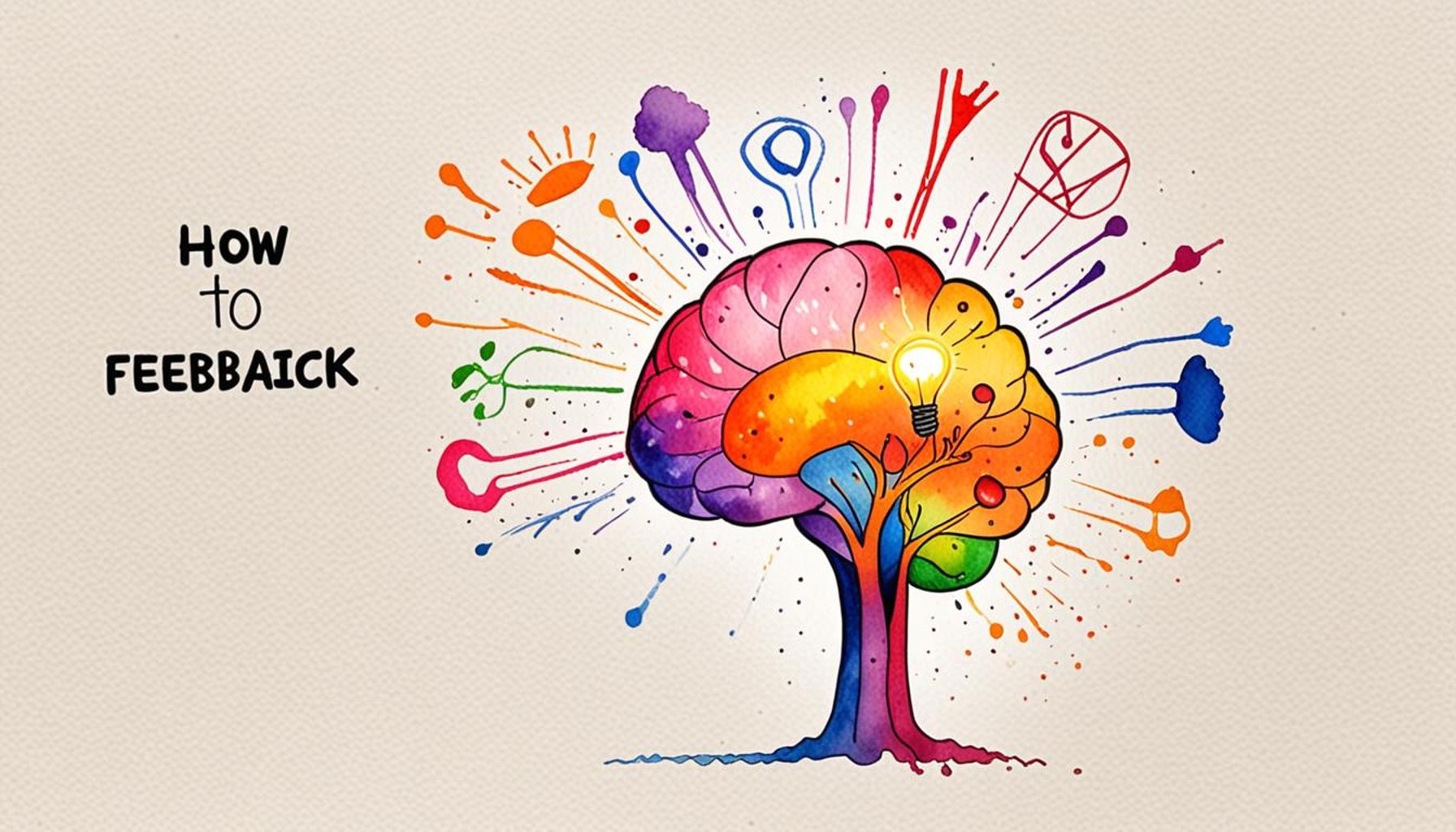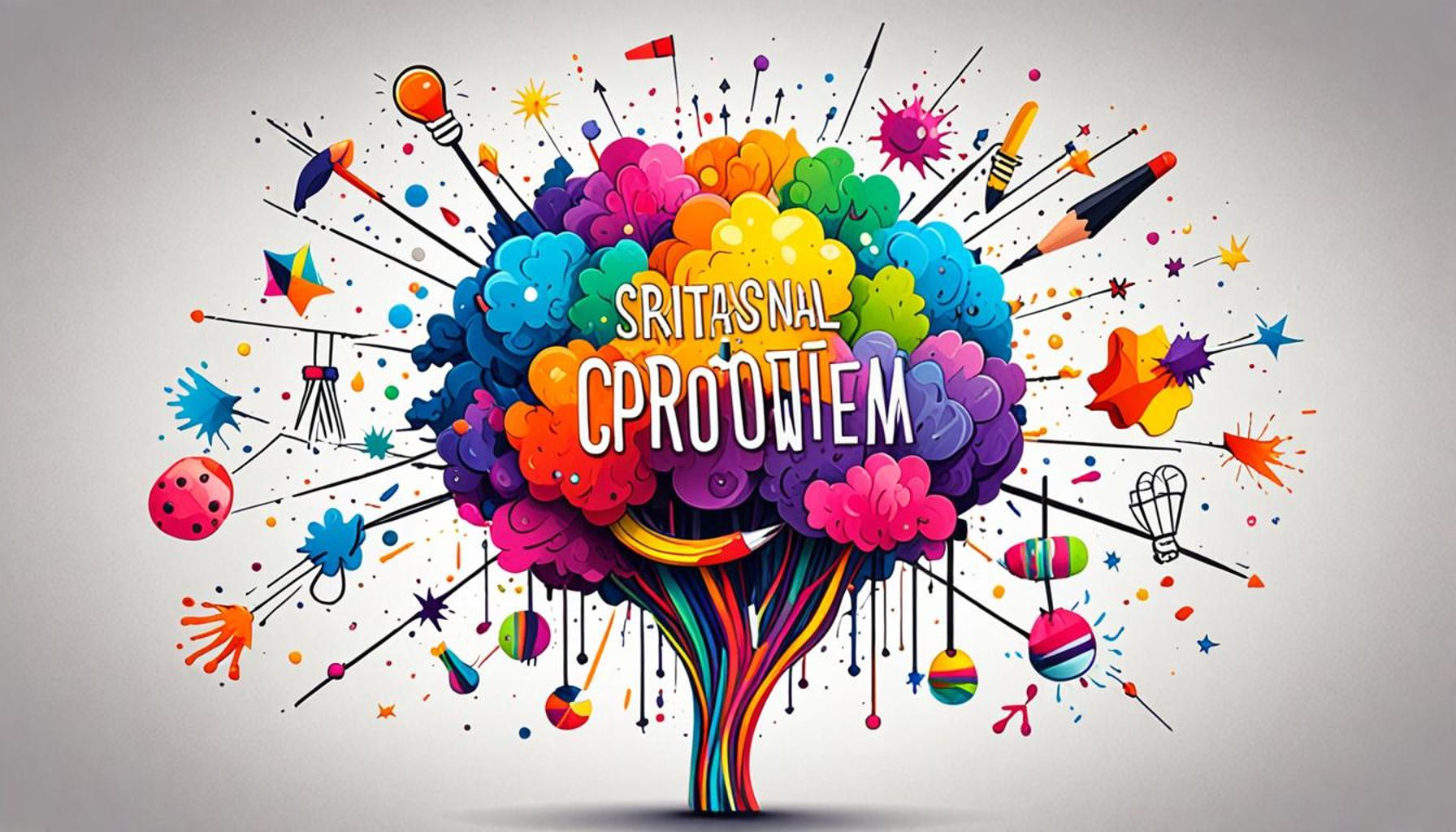Feedback and Autonomy: How Receptiveness to Criticism Can Foster Personal Independence

Exploring the Transformative Power of Feedback
In an era characterized by rapid technological advancements and shifting societal norms, the ability to adapt and grow personally and professionally is more important than ever. Central to this evolution is the importance of being receptive to criticism, which serves as a catalyst for enhancing personal independence. When individuals embrace feedback, they unlock new avenues for self-improvement, gaining the autonomy required for meaningful development.
The benefits of being open to constructive criticism extend far beyond mere acceptance; they significantly influence various aspects of life. Here are a few noteworthy advantages:
- Enhanced Self-Awareness: By recognizing both strengths and weaknesses, individuals can make informed decisions about their careers, relationships, and personal endeavors. For instance, a small business owner in Nigeria may discover through customer feedback that their service lacks efficiency. This acknowledgment can lead them to implement better processes, thus enhancing their business model and customer satisfaction.
- Improved Skills: Regular feedback provides crucial insights that contribute to skill refinement. This is particularly vital in Nigeria, where widespread entrepreneurial activities are common. For example, an aspiring graphic designer who actively seeks feedback from mentors can learn the nuances of design software quickly, becoming a sought-after professional in a crowded job market.
- Stronger Resilience: Learning to handle criticism effectively builds emotional fortitude. Feedback, when viewed positively, transforms challenges into constructive learnings that promote resilience. This facet is particularly valuable in Nigeria’s diverse socio-economic landscape, where encountering criticism is inevitable in both personal and professional arenas.
Nigeria’s complexity presents unique challenges, from navigating intricate social relationships to embarking on entrepreneurial journeys. In such a challenging environment, feedback from peers, mentors, and even customers becomes an invaluable asset. Those who welcome insights can cultivate the independence necessary to thrive amidst uncertainty.
This exploration not only illustrates how embracing feedback fosters personal growth but also highlights its role in empowering individuals to assert their autonomy across multiple facets of life. By utilizing practical examples such as the experiences of Nigerian entrepreneurs, readers will discover how the journey toward self-reliance is often sparked by a willingness to learn and adapt to feedback.
As we continue to delve deeper into specific strategies for harnessing feedback effectively, we encourage readers to reflect on their own experiences with criticism. Whether it’s in a professional setting or in personal relationships, the key lies in viewing feedback as a developmental tool rather than a mere evaluation. This shift in perspective can pave the way to not just survival but flourishing in an ever-evolving world.

SEE ALSO: Click here to read another article
The Interplay of Feedback and Personal Growth
Embracing feedback is not merely a passive acceptance; it is a dynamic endeavor that significantly shapes personal development. In the context of Nigeria, where diverse cultures and experiences converge, the reception of criticism can take on various forms, each fostering a unique pathway to personal independence. The process begins with establishing a growth mindset—an openness to learning that transforms feedback into a driving force for improvement.
To better comprehend the impact of feedback on autonomy, one must consider its fundamental components:
- Cultivating a Growth Mindset: This principle, rooted in the belief that abilities can be developed through dedication and hard work, is crucial for personal development. An individual who embraces this mindset is more likely to welcome criticism, recognizing that it presents opportunities for growth rather than threats to self-esteem. For example, a young entrepreneur in Lagos who receives constructive feedback on their marketing approach may innovate their strategy, leading to greater market penetration and profitability.
- Encouraging Dialogue: Actively seeking feedback fosters a culture of open communication, where individuals feel empowered to share their thoughts. In Nigerian workplaces, this dialogue enhances teamwork and cohesion, as team members become more receptive to one another’s ideas. A graphic design team, for instance, thrives on collaborative feedback sessions, ultimately producing creative outputs that resonate well with clients.
- Emphasizing Actionable Insights: Effective feedback should lead to actionable steps that individuals can take to improve their performance. In Nigeria’s educational sector, teachers who provide specific and constructive feedback enable students to identify areas for enhancement. This practice not only boosts students’ confidence but also equips them with the tools to pursue independence in their learning journeys.
As these elements are put into practice, there emerges a profound transformation in how individuals approach challenges and setbacks. Feedback is no longer viewed as a form of judgment but rather as an educational tool that paves the way for independence. Such a paradigm shift is essential in Nigeria, where balanced growth often requires navigating external perceptions while remaining true to one’s values and goals.
Furthermore, the diverse landscape of Nigeria encourages individuals to understand that criticism can come from unexpected sources. This openness is necessary for business leaders, educators, and budding entrepreneurs who must constantly seek out and integrate reactions from various stakeholders. The capacity to extract wisdom from constructive criticism paves the way for self-reliance and resilience in one’s personal and professional life.
In the following sections, we will delve deeper into practical strategies and real-life examples of individuals who have harnessed feedback to cultivate their independence. By exploring stories of Nigerians who have turned constructive criticism into opportunities for growth, we hope to illuminate a path that inspires readers to embrace feedback as a vital component in their journey toward self-empowerment.
| Advantages of Feedback | Key Benefits for Autonomy |
|---|---|
| Enhanced Self-Awareness | By accepting constructive criticism, individuals gain insights into their strengths and weaknesses, leading to greater self-awareness and maturity. |
| Improved Decision-Making | A willingness to consider diverse perspectives fosters informed decision-making, ultimately enhancing personal independence. |
| Learning and Growth | Feedback facilitates continuous learning, empowering individuals to adapt and grow, which is essential for autonomy. |
| Stronger Relationships | Engagement with feedback can lead to stronger relationships, enhancing collaboration and support as one strives for independence. |
Understanding the intricate link between feedback and personal independence opens doors to new ways individuals can foster their autonomy. Receiving feedback isn’t merely a passive experience; it is a proactive approach that enables individuals to challenge their limits. The ability to embrace critique propels one toward self-improvement, which is pivotal in achieving true personal independence. Moreover, those who seek feedback commonly find themselves in evolving social environments that enrich their life experiences.This interdependence between feedback responsiveness and personal autonomy not only paves the way for professional growth but also enhances one’s emotional resilience. A feedback-rich environment encourages individuals to take initiative and make choices aligned with their values, thus driving them toward a fulfilling independent life. Ultimately, the courage to face criticism transforms challenges into opportunities for empowerment.
SEE ALSO: Click here to read another article
Transforming Criticism into Opportunities
The transformation of feedback into authentic opportunities is a vital skill that can dictate the trajectory of personal and professional lives. In Nigeria, characterized by a rich tapestry of cultures and societal expectations, the journey of learning from criticism can lead to enhanced autonomy and self-sufficiency. To fully harness this potential, individuals must cultivate the ability to self-reflect. Self-reflection entails evaluating one’s reactions to feedback, understanding emotional responses to criticism, and identifying personal triggers that may hinder growth.
Self-Reflection and Its Importance: Individuals who are able to pause and assess their reactions to feedback often find themselves on a path to greater emotional and self-awareness. For instance, a teacher in a secondary school in Abuja who receives criticism about their teaching methods may initially feel defensive. However, taking the time to reflect on this feedback can help them discern useful insights, which can ultimately lead to more effective teaching practices. This reflective process not only enhances their pedagogical skills but also fosters a sense of independence in discovering their unique teaching style.
Embracing Constructive Criticism: In environments where feedback is consistently constructive, an atmosphere of trust flourishes. For example, in the burgeoning tech hubs of cities like Lagos and Port Harcourt, teams that embrace open feedback loops tend to thrive. Here, tech entrepreneurs learn that accepting critique on their product designs can lead to innovations that resonate with users. A mobile app developer who invites user feedback and acts upon it may discover entirely new features that enhance user engagement, thus cultivating their independence as a business owner.
Furthermore, the capacity to embrace constructive criticism can be pivotal in seeking mentorship opportunities. Established professionals in fields ranging from agriculture to entertainment often extend guidance to younger generations. A young artist learning from an experienced mentor gains invaluable insights, and the ability to welcome critique enhances their skills significantly. This intergenerational transfer of knowledge demonstrates how feedback serves not only as an avenue for improvement but also as a mechanism that encourages independence through acquired wisdom.
Building Resilience through Feedback: Resilience is an essential quality for anyone seeking personal independence. Engaging constructively with feedback can help individuals develop thicker skin regarding criticism, fostering resilience to face challenges head-on. In the context of Nigeria’s vibrant small business sector, entrepreneurs who continually confront critiques learn to pivot and adapt their strategies. For instance, a local fashion designer in Enugu who receives feedback about their collection’s pricing can adjust accordingly, ensuring their creations remain accessible while preserving quality.
Moreover, the practice of receiving feedback has profound implications beyond individual growth. It fosters a culture where community members encourage one another to strive for excellence. In many Nigerian schools, peer feedback among students enhances learning experiences, as students discuss their work collaboratively. This peer-informed process strengthens not only academic independence but also the communal spirit of support that is essential in Nigerian society.
As individuals begin to weave the threads of self-reflection, constructive criticism, and resilience into their lives, they find themselves better equipped to navigate challenges and assert their identities. In a country where cultural richness and diversity present unique obstacles and opportunities, fostering independence through the receptiveness to feedback is an essential component in realizing one’s potential.
LEARN MORE: This related article may interest you
Embracing Feedback for Personal Independence
As we navigate a world rich in challenges and opportunities, the symbiotic relationship between feedback and autonomy becomes increasingly evident. Throughout this exploration, it has been established that a receptive attitude towards criticism is not merely a matter of personal growth; it is a catalyst for fostering personal independence. By engaging in self-reflection, individuals can transform constructive feedback into meaningful insights that empower them to refine their skills and assert their unique identities.
The experiences shared—ranging from a teacher in Abuja to tech entrepreneurs in Lagos—illustrate that the ability to embrace feedback transcends individual disciplines. Whether in education, technology, or the arts, the insights gained from constructive criticism equip individuals with the resilience to adapt and thrive in their environments. This adaptability is particularly salient in Nigeria’s dynamic landscape, where cultural diversity can both enrich and challenge one’s path to independence.
Moreover, the communal aspect of feedback fosters a culture of support and encouragement, liberating individuals from isolation and creating a sense of belonging within their communities. By championing a collective ethos of shared wisdom and open dialogue, we can further cultivate a society where personal autonomy is nurtured, and everyone is empowered to reach their fullest potential. Ultimately, embracing feedback not only enhances individual journeys but also strengthens the fabric of our society, positioning us for a future defined by resilience, innovation, and independence.


